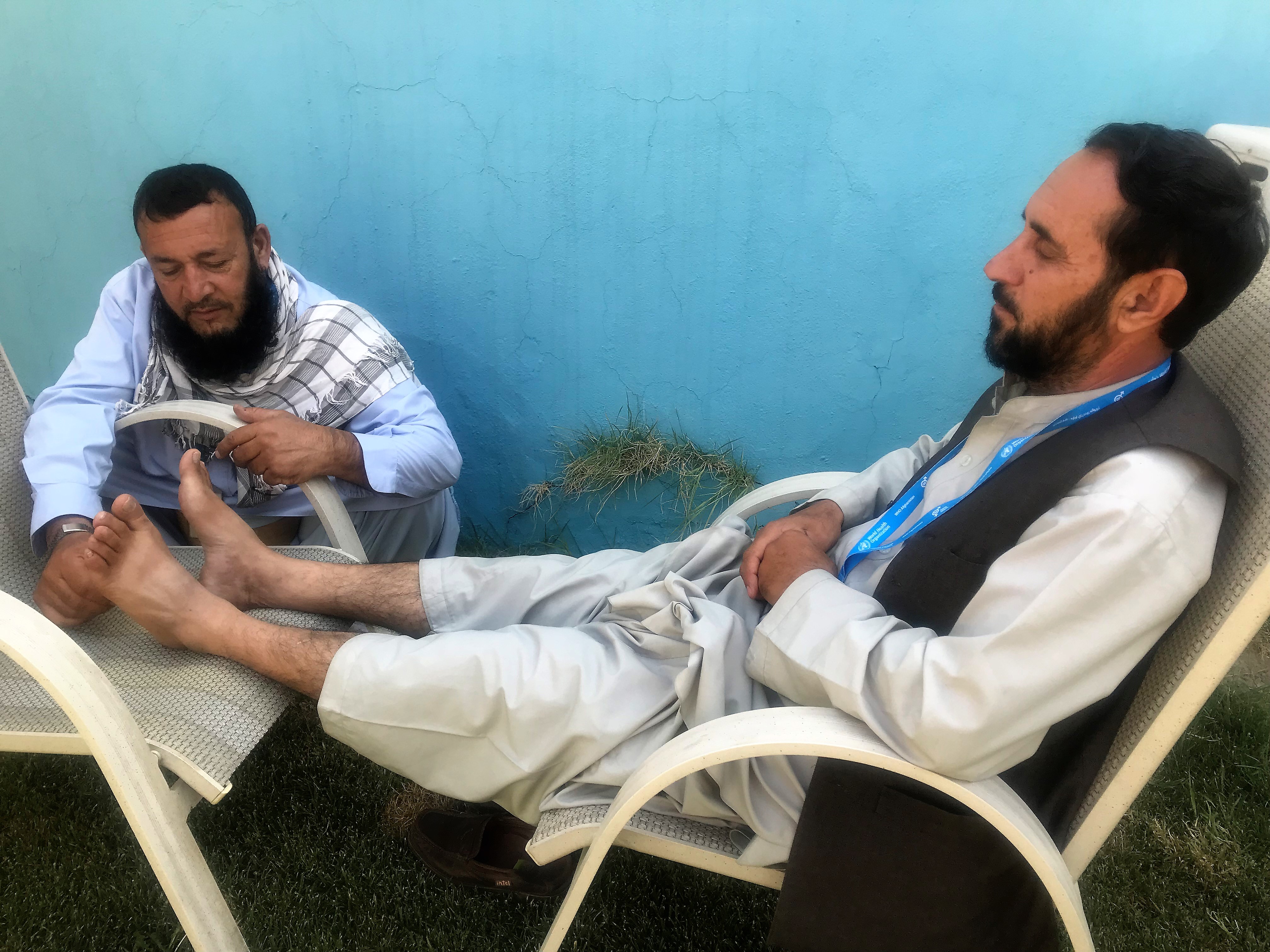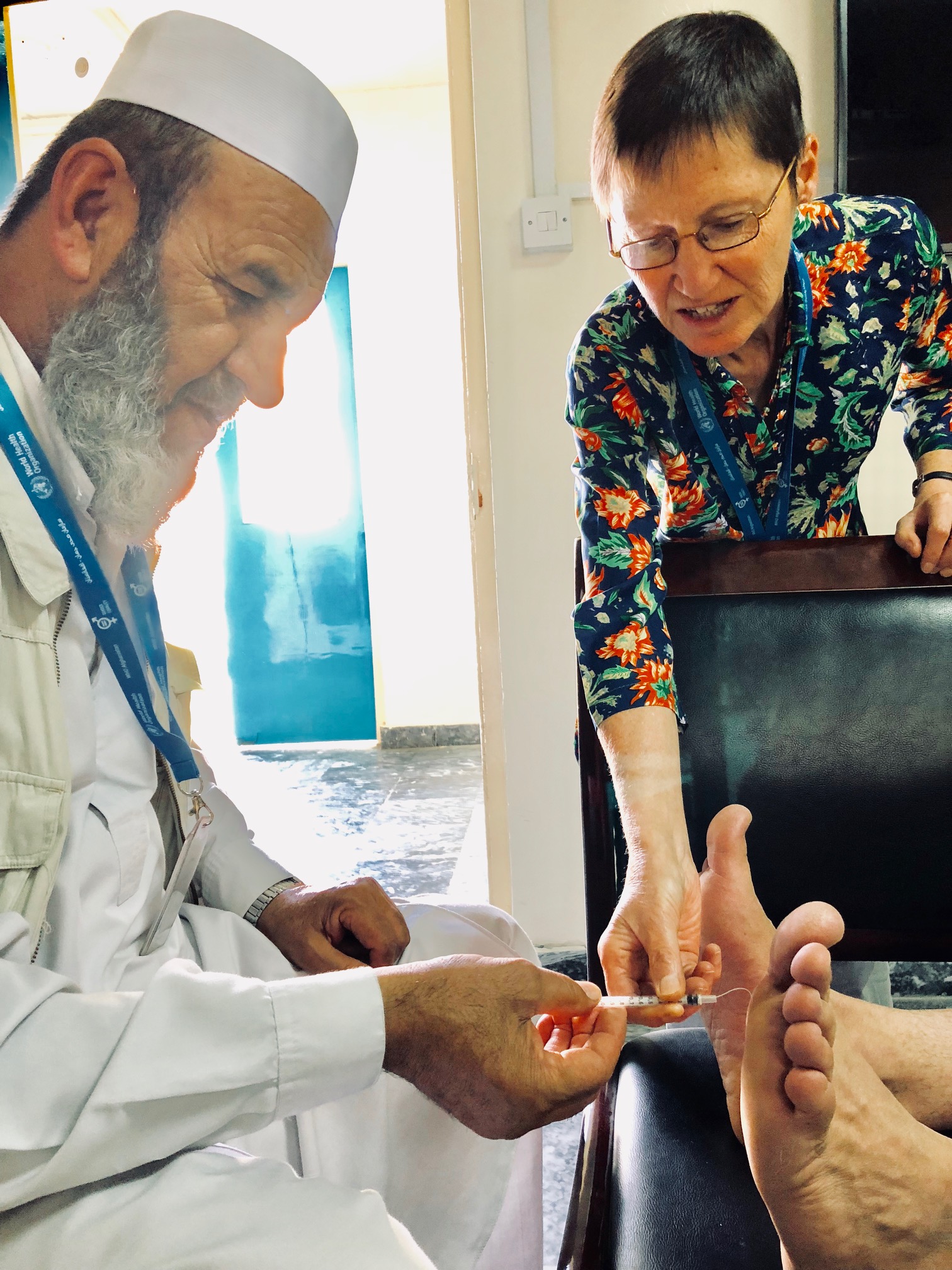
28 August 2018, Kabul – Dr Sadiq is examining the feet of his colleague Mr Dauod. This is the first time they are learning to look for changes to the feet of diabetic patients. Dr Sadiq and Dauod came from the primary health care centre in Kandahar, they are taking turns to learn how to check for diabetic foot that would require medical intervention.
This was a part of a 4-day training for 26 health care professionals from Afghanistan. The training aims to helpmedical staff understand and use medicines and equipment for the management of key noncommunicable diseases (NCDs) and raise awareness of NCDs and the importance of managing them in Afghanistan.
Today in Afghanistan, NCDs such as cardiovascular diseases, cancer, respiratory diseases and diabetes are responsible for almost 33.3% of all deaths in the country, similar or exceeding the number of deaths caused by war-related trauma injuries.
“Our WHO Regional Office has developed a NCD emergency kit, which is designed to support the implementation of NCD management in countries like Afghanistan where NCD care is not covered yet in public health facilities,” says Dr Richard Peeperkorn, WHO Representative in Afghanistan, in his opening speech at the training. “We are happy to collaborate with the Afghan Red Crescent Society to pilot this training using the NCD emergency kit, and we hope that the Ministry of Public Health will integrate NCD management into public health service packages in the future.”
Key medical staff from primary health care centres run by the Afghan Red Crescent Society in Herat, Kunduz, Kandahar and Nangarhar travelled to Kabul for this pilot training as the NCD emergency kits will soon be deployed to their centres.
The training was conducted by Dr Sarah Montgomery and Dr Peter Le Feuvre, family physicians and clinical directors from Primary Care International (PCI), United Kingdom. With a mixture of presentations, role plays and case discussions, the trainees learnt about hypertension, type 2 diabetes, chronic respiratory disease, cardiovascular disease and secondary prevention. Trainees also participated in a session on communication and consultation skills with a focus on motivational interviewing techniques.

“We are surprised and impressed by how much the participants are engaging with us. As the days go by, I can see that they are really hungry to learn,” says Dr Montgomery, “some of the participants were practising what they learnt over and over to make sure that they get it and there’s no misunderstanding.”
“WHO is planning to send required number of NCD emergency kits to selected Afghan Red Crescent Societ-managed primary health care centres where this initiative will be piloted during 2018–2019, we will also mobilize more resources to sustain this support,” said Dr Supriya Warusavithana, WHO NCD programme manager in Afghanistan.
Such training programmes were conducted before for Gaziantep and Syria to ensure the continuation of NCD management for populations affected by complex emergencies. PCI is supporting WHO to deliver NCD training programmes for primary health care staff in the Region in order to optimize the use of the emergency kits, PCI is also developing a set of tools for monitoring the implementation of the NCD kits once they roll out to provinces.


